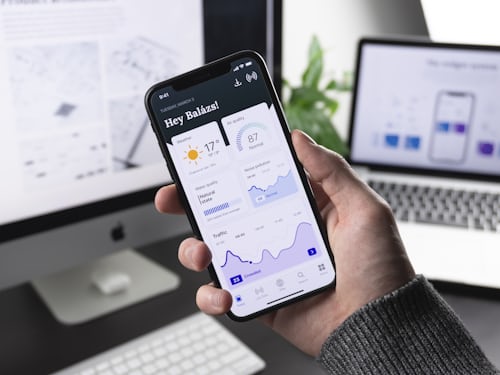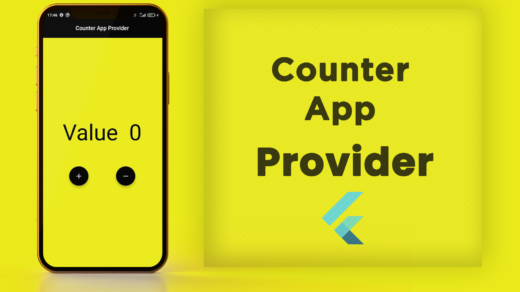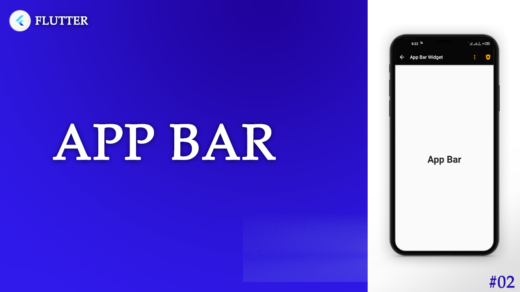Flutter Developer: Flutter is an open-source mobile application development framework created by Google. It is used to build natively compiled applications for mobile, web, and desktop from a single codebase.
Flutter uses the Dart programming language, which is an object-oriented language with C-style syntax. Flutter provides a rich set of pre-designed widgets and tools for building beautiful and responsive user interfaces, and it also includes support for integration with platform-specific features such as camera, geolocation, and more.
One of the main benefits of Flutter is that it allows developers to write code once and deploy it to multiple platforms, including Android, iOS, and the web. This can save developers time and resources compared to building separate native apps for each platform.
Flutter has become a popular choice for building cross-platform mobile apps due to its fast development cycle, rich set of features, and strong developer community. It is used by a wide range of companies and organizations, including Google, Alibaba, and Capital One.
Best Practices for Flutter Developer 2023

Here is the List of Best Practices for Flutter Developers in 2023
1) Follow the Flutter style guide
2) Use effective naming conventions
3) Keep your code organized
4) Test your code
5) Write clear and concise documentation
6) Use version control
7) Keep your Flutter and Dart dependencies up to date
8) Use effective error handling
9) Optimize your app’s performance
10) Follow best practices for app security
Follow the Flutter style guide
Flutter has a style guide that outlines recommended coding practices, such as how to name variables and organize your code. It is important to follow the style guide to ensure that your code is consistent and easy to read and understand.
Use effective naming conventions
It is important to use descriptive and meaningful names for your variables, functions, and other code elements. This will make your code easier to read and understand, and will also help you avoid naming conflicts and other issues.
Keep your code organized
It is important to keep your code organized and easy to navigate. This can include using comments to document your code, organizing your code into logical blocks or modules, and using effective naming conventions.
Test your code
It is important to test your code to ensure that it is working correctly. Flutter provides a testing framework called “flutter_test” that you can use to write tests for your code.
Write clear and concise documentation
It is important to provide clear and concise documentation for your code to help other developers understand how to use it. Flutter uses a tool called “dartdoc” to generate documentation based on the comments and documentation strings in your code.
Use version control
It is important to use version control to track changes to your code and collaborate with other developers. Flutter integrates with popular version control systems such as Git, and it is recommended to use a version control system when developing with Flutter.
Keep your Flutter and Dart dependencies up to date
It is important to keep your Flutter and Dart dependencies up to date to ensure that you are using the latest and most stable versions. You can update your dependencies using the “flutter pub upgrade” command.
Use effective error handling
It is important to handle errors effectively in your code to ensure that your app is stable and reliable. This can include using try-catch blocks to handle exceptions and using error messages and logs to help you diagnose and fix issues.
Optimize your app’s performance
It is important to optimize your app’s performance to ensure that it runs smoothly and efficiently. This can include optimizing the layout of your app, minimizing the number of rebuilds, and using asynchronous programming techniques.
Follow best practices for app security
It is important to follow best practices for app security to protect your users’ data and privacy. This can include using secure network connections, encrypting sensitive data, and following app store guidelines for handling user data.
It is important to keep in mind that these are just a few examples of best practices for Flutter developers, and there are many other factors that can affect the quality and effectiveness of your Flutter code.
Why did Flutter Developer need to Follow Best Practices?
There are several reasons why it is important for Flutter developers to follow best practices:
1) Code Quality
2) Development Efficiency
3) App Stability And Reliability
4) App Security
Code Quality
Following best practices helps to ensure that your code is of high quality and meets industry standards. This can make it easier for other developers to understand and maintain your code, and can also help to improve the reliability and performance of your app.
Development Efficiency
Following best practices can help to make your development process more efficient by reducing the number of errors and bugs you encounter, and by making it easier to understand and work with your code.
App Stability And Reliability
Following best practices can help to improve the stability and reliability of your app by ensuring that your code is well-structured and follows good coding practices. This can help to reduce the number of crashes and other issues that users may experience.
App Security
Following best practices for app security can help to protect your users’ data and privacy, and can also help to avoid issues with app store guidelines.
Overall, following best practices is an important part of being a professional Flutter developer, and can help to ensure that your apps are of high quality and meet the needs of your users.
Here is the List of Best Practices for a Flutter Developer (2023)
Best Practices for Flutter Developer
Read More
How to use PinPut Flutter Package in Flutter 2022
Flutter Animation: How to Rotate a Circle in the Flutter
Flutter Animation: How to animate a Circle in the Flutter
How to make a flutter counter app with the provider?
Complete detail about Flutter state managements in the flutter





